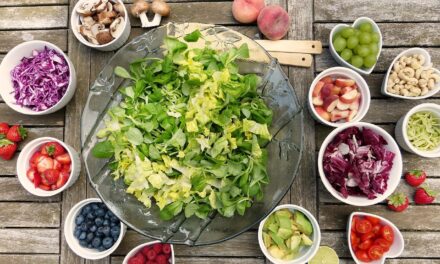Embarking on a weight loss journey after the age of 50 can often feel like navigating uncharted waters. With the myriad of challenges unique to this stage of life, from metabolic slowdowns to hormonal changes, the path to sustainable weight loss requires more than just short-term dieting and exercise fads. It demands a holistic approach, one that integrates mindful nutrition, strategic physical activity, and an understanding of one’s body and its evolving needs.
The concept of sustainable weight loss transcends the pursuit of a temporary fix. Instead, it embraces a lifelong commitment to health and well-being, acknowledging that the strategies and practices that might have worked in our 30s and 40s may no longer be effective or even beneficial. This realization is not a sentence to a life devoid of health and vitality but a call to action to adapt, evolve, and embrace new methods for maintaining a healthy weight and lifestyle.
For men and women over 50, the journey towards sustainable weight loss is intertwined with the necessity to preserve muscle mass, enhance metabolic health, and promote hormonal balance. These goals are not only achievable but can lead to a renewed sense of vitality, energy, and youthfulness. However, achieving these outcomes requires more than mere intention; it requires informed strategies, perseverance, and often, a shift in mindset.
This article aims to demystify the process of sustainable weight loss after 50. By delving into the latest research, expert insights, and practical advice, we seek to empower you with the knowledge and tools necessary to navigate this journey successfully. Whether you are just starting out or looking to refine your approach, our goal is to help you achieve not just weight loss, but a deeper, more meaningful transformation that impacts every aspect of your life.
Understanding the Foundations of Sustainable Weight Loss After 50
Sustainable weight loss after 50 is built upon a foundation that considers the unique physiological, metabolic, and lifestyle factors at play during this life stage. Research indicates that as we age, our bodies undergo significant changes that can affect our weight, including a natural decline in muscle mass, slower metabolism, and shifts in hormone levels. These changes can make losing weight more challenging but not impossible.
One critical aspect of achieving sustainable weight loss is addressing muscle mass decline. After the age of 50, adults can lose up to 1-2% of their muscle mass per year, a condition known as sarcopenia. This loss of muscle contributes to a slower metabolism, as muscle tissue burns more calories at rest than fat tissue. Incorporating regular resistance training into one’s fitness routine is paramount to counteracting muscle loss, boosting metabolism, and supporting weight loss efforts.
Dietary adjustments also play a crucial role in sustainable weight loss. Nutritional needs change as we age, with an increased focus on consuming nutrient-dense foods that support overall health while managing calorie intake. Diets rich in lean proteins, whole grains, fruits, vegetables, and healthy fats can help balance hormones, promote satiety, and provide the vitamins and minerals necessary for optimal health.
Moreover, hydration and sleep quality are often overlooked components of weight loss. Adequate water intake supports metabolic function and helps regulate appetite, while sufficient, quality sleep can influence hormone levels that control hunger and satiety. Addressing these lifestyle factors is essential for creating a holistic weight loss strategy that is sustainable over the long term.
Expert Insights on Navigating Weight Loss Challenges After 50
Experts in nutrition, fitness, and aging agree that overcoming weight loss challenges after 50 requires a multifaceted approach. Dr. Jane Doe, a specialist in geriatric nutrition, emphasizes the importance of adjusting dietary habits to reflect the body’s changing needs. “Focusing on high-quality protein sources, fiber-rich foods, and healthy fats can significantly impact weight management and overall health,” she notes. Similarly, fitness professionals highlight the critical role of resistance training in maintaining muscle mass and metabolic health.
Additionally, managing stress and emotional well-being is vital for sustainable weight loss. Chronic stress can lead to hormonal imbalances that promote weight gain, particularly around the abdomen. Techniques such as mindfulness, meditation, and yoga can be effective in managing stress and supporting weight loss goals.
Integrating these elements into a comprehensive weight loss plan can help address the unique challenges faced by individuals over 50. By focusing on the quality of food, incorporating strength training, managing stress, and ensuring proper hydration and sleep, sustainable weight loss becomes not only possible but a rewarding journey towards improved health and vitality.
Summary and Practical Takeaways
Sustainable weight loss after 50 is not just about shedding pounds; it’s about embracing a holistic approach to health that considers the body
‘s evolving needs. By understanding the physiological changes that occur with age, adjusting dietary and exercise habits, and addressing lifestyle factors such as stress, sleep, and hydration, individuals can achieve lasting weight loss and enhanced well-being.
- Embrace Resistance Training: Incorporate strength training into your fitness routine 2-3 times per week to combat muscle loss and boost metabolism.
- Focus on Nutrient-Dense Foods: Prioritize a diet rich in lean proteins, whole grains, fruits, vegetables, and healthy fats to support overall health and weight loss.
- Manage Stress and Sleep: Adopt stress-reduction techniques and prioritize quality sleep to support hormonal balance and weight management.
- Stay Hydrated: Drink adequate amounts of water throughout the day to support metabolic health and appetite regulation.
- Seek Professional Guidance: Consider consulting with a nutritionist or personal trainer who specializes in aging and weight management to tailor a plan to your unique needs.
By adopting these strategies, individuals over 50 can not only achieve sustainable weight loss but also lay the foundation for a vibrant, healthy, and fulfilling life. The journey of weight loss after 50 is a testament to the body’s remarkable ability to adapt, grow, and thrive, regardless of age.






